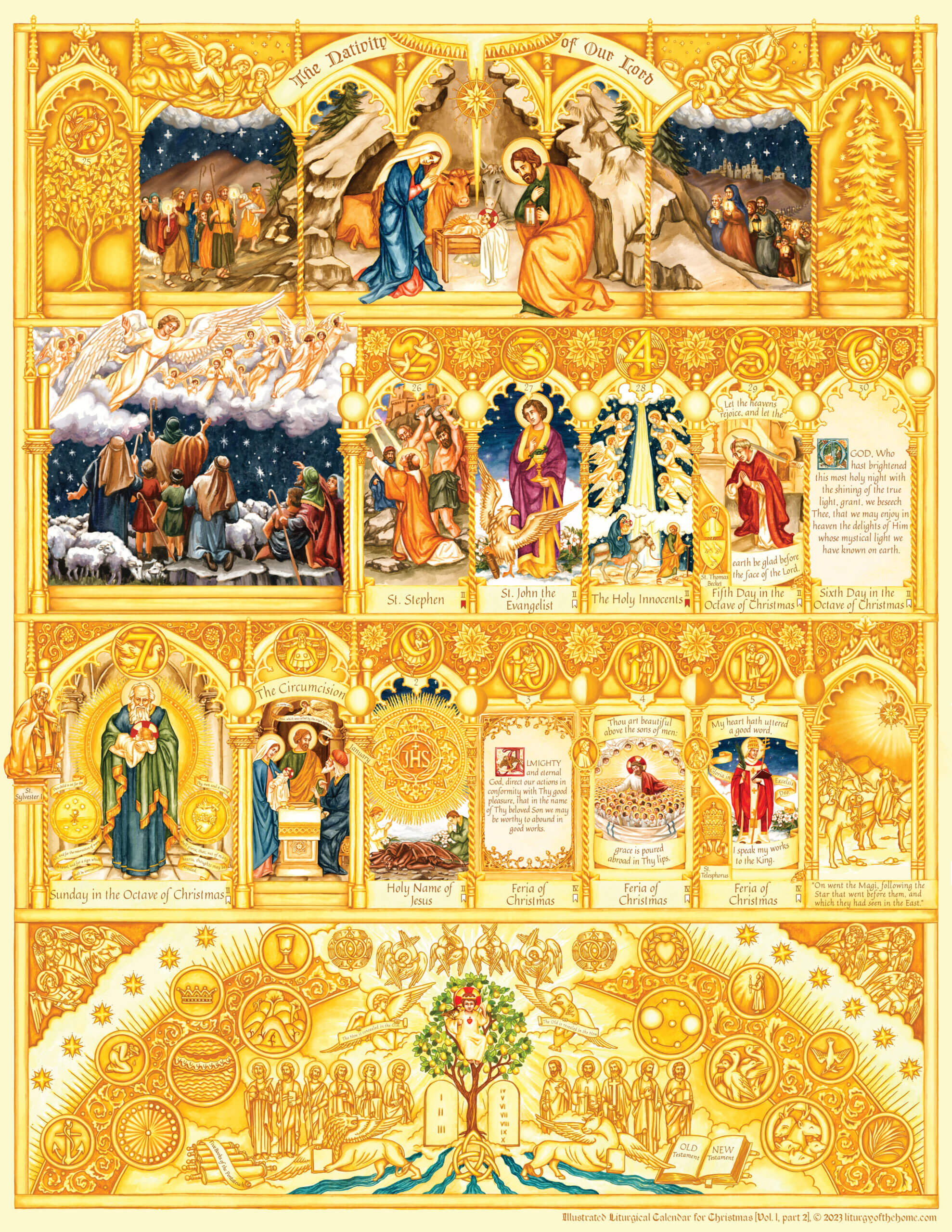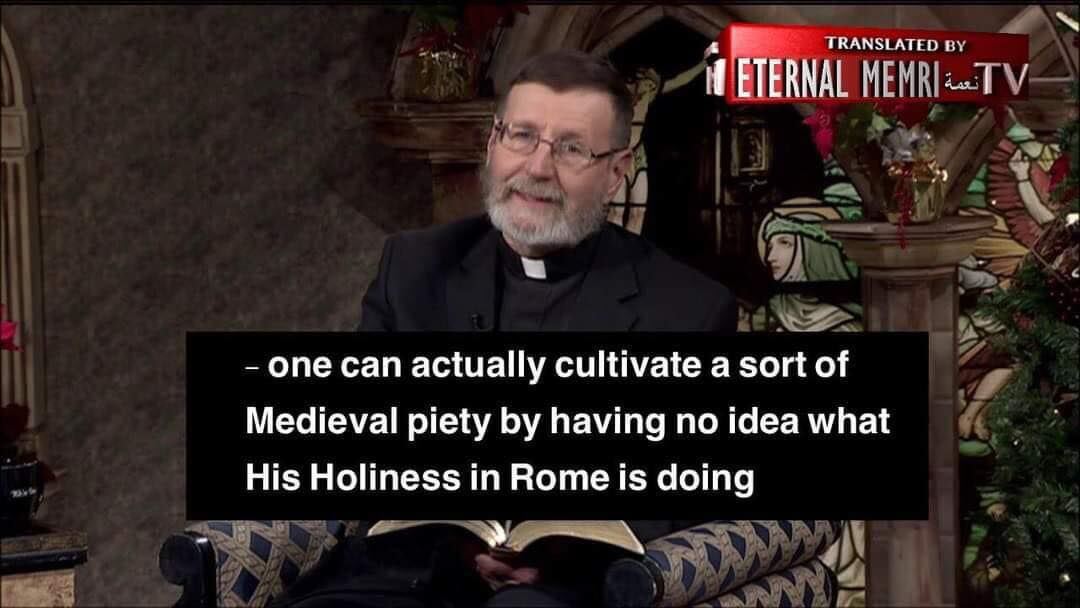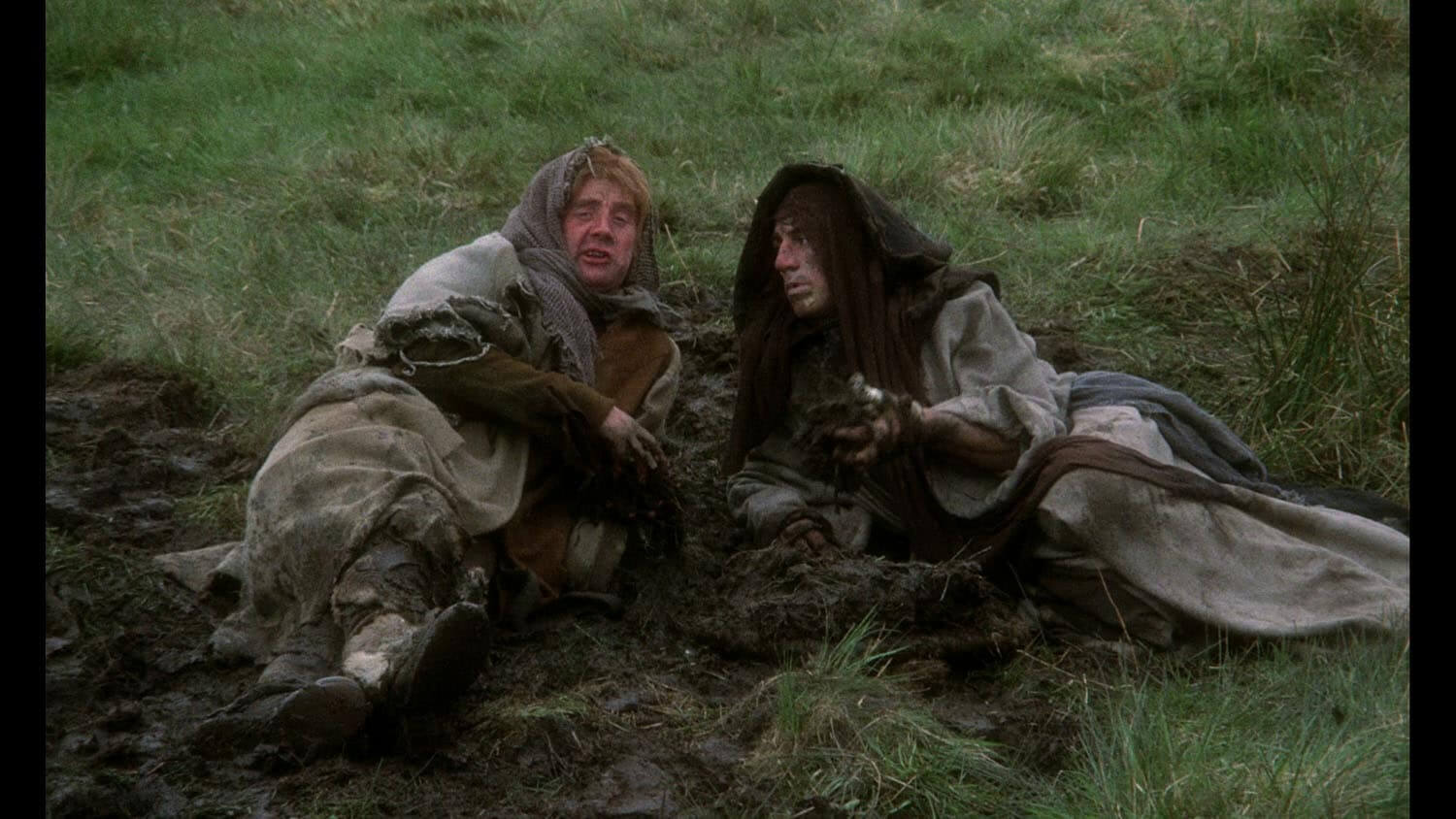Shortly after the horrible news came out of the Vatican about blessing “same-sex couples,” I went on an already scheduled retreat for Christmas. Thanks be to God, I was able to unplug totally from work, news, and anything beyond the four walls of my home, my parish and my community.
It was an experience of spiritual bliss.
About five days in I turned to my wife and said, “You know, it hasn’t even occurred to me in five days that there is a Vatican, or that the Vatican is doing anything.” I laughed to myself and felt an immense freedom to be able to “let go and let God” for a while.
I could get on with the business of Catholic life: overcoming sin, acquiring virtue, kneeling at the manger scene – doling out candy canes and hot chocolate to my little children and counting the twelve days of Christmas!
Every day this year my kids have looked at our Liturgy of the Home calendar and asked what day of Christmas it is. They know and love the song, and my kids are so delighted to find the next number of things. Today it was a bit difficult: nine ladies dancing represents the nine choirs of angels. See if you can spot them for yourself (see the key and then look at the bottom!):


And there you have it! That’s what has occupied my mind for eleven days!
This is the “medieval peasant option,” and maybe you should consider this in our dark days.
What do I mean by this? Well, first of all, let’s scratch the word “medieval” since the term was invented by anti-Christian forces.[1] Further, I would suggest that this “peasant option” is the normal Catholic life of most of our forefathers. This was my attempt to reclaim this option in my latest text, When the Gates of Hell Prevail: What Catholics Do in Dark Times.

What do I mean by all this peasantry business? I mean some of us should consider returning to this more traditional form of Catholic living. Even in the 19th century this was done away with, after the advent of the newspaper. Many of us would do a favour to our souls (and our families) if we permanently checked out of reading the news, and especially Vatican news. This would be living Catholic life like all our forefathers did before the year 1800 (or even most of them before 1900).

The fact is, most of our forefathers lived and died without ever knowing who the pope was or what he was doing. And this is what normal Catholic life was like for centuries and centuries. Do you think Almighty God had a problem with that? Do you think the Almighty wants you to be concerned with the next thing coming out of the Vatican?
Remember when God chose the Fatima children and they didn’t know what Russia was? Imagine living Catholic life unburdening yourself from the immensity of the worldwide Catholic and social crisis.
But wait – doesn’t that mean you are sticking your head in the sand like an ostrich? Examine yourself: do your duties require you to be involved in the news? Or is the news distracting you from the real business of Catholic life: saving your soul? You decide.
It might be negligent to check out of the news. Or it might be, for you, something you really need to try. Lent is coming up quick in 2024, why not consider it? Here’s a few thoughts:
1. Saving your soul and helping your family get to heaven is the whole business of Catholic life. This is the thing that should occupy our minds most of all. This is the thing for which your Heavenly Father has made you responsible first and foremost. So unplugging – whether permanently or not – is getting back to basics. It means getting on with the more important things in this life and the next. Let’s examine our priorities here.
2. It teaches non-Catholics that Catholic life does not revolve around the pope. The fact is, you don’t need to be current on Vatican news to respond to neighbours who ask. Especially with the last Vatican bomb, I heard about a lot of non-Catholic family members asking Catholics “What’s up with this?” Great question. But you don’t need to be current on Catholic news to respond properly. In fact, it becomes a catechetical opportunity:
Non-Catholic family member: “Why did your pope just bless gay marriage?”
Catholic: “Oh, what did the pope do? I haven’t been following him for a while.”
“Wait, what? I thought you were Catholic!”
“I am, but you don’t need to pay attention to the pope to be Catholic.”
“You don’t?”
“No. Being Catholic is about the Real Presence of Christ in the Blessed Sacrament. It’s about communion with Mary and all the saints and the angels, and the glory of paradise.”
“Wow, never heard it put like that. That’s sort of a relief since this pope is kind of crazy.”
“Yes, I understand of course.”
3. It teaches non-Catholics that the authority of the Church is Tradition, not the pope. The pope is not over Tradition, but is its guardian. So continuing with the same imaginary conversation…
Non-Catholic: “Wait, but the pope just blessed gay stuff! I’m scared if I become Catholic it’ll just be another Anglican disaster.”
Catholic: “But the pope doesn’t have that much power. The Liberal heretics want to find a pope who will turn black into white, change Coke into Pepsi, and bless heresy like that. The Anglicans can just vote these things into existence. But in the Catholic Church, it doesn’t work that way. The pope just doesn’t have much power.”
“I always thought he had too much power…”
“Exactly, he’s there to guard the Tradition. He can’t change settled doctrine.”
“Another relief, I guess.”
I remember when I was Eastern Orthodox and this concept was explained to me. It was fundamental for my own conversion to Rome. Most non-Catholics are scared to become Catholic because they think they have to ask “how high?” when the pope says, “Jump!” But this is not Catholicism. If you take the peasant option, you can help yourself and help your neighbour like this.
4. You’re not going to miss anything that you really can’t miss. If the pope does something that you really need to heed (let’s say another Maria dogma perhaps?), then this would be announced from the pulpit. Don’t worry, the traditional forms of communication won’t fail if you take the peasant option.
This does not mean retreating from the world and become some form of monastic. Our Catholic forbears were deeply embedded in the world. But there’s so much in the world to handle before you start to try to handle worldwide problems. Think about it. No need to burden your soul more than you need to. In my aforementioned book, I have a chapter on the “vice of curiosity.” This is something that has really helped me to understand. This vice is defined by St. Thomas an insatiable desire for “useless knowledge.” It means going after all the information that does not assist you in the duties of your state in life. Rather it does the opposite. As we begin 2024, think about this option for your own spiritual lives as we look forward to what St. John Chrysostom called “the springtime of the soul”: the Great Fast of Lent.
T. S. Flanders
9th day of Christmas
Holy Name of Jesus
Octave Day of St. Stephen
[1] My book, City of God vs. City of Man (Our Lady of Victory Press, 2021) attempts to overcome this Marxist domination of our historical language.


